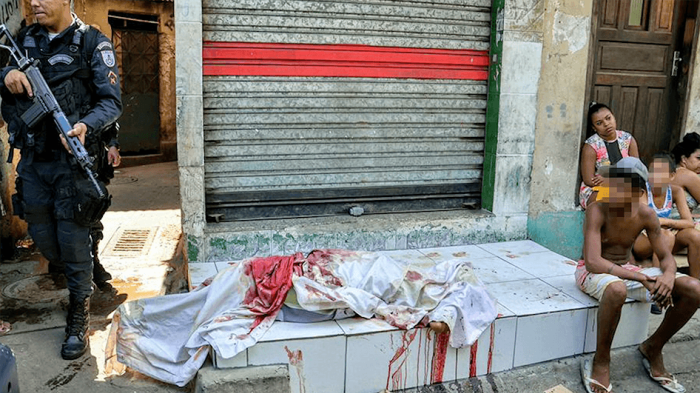When Rio de Janeiro won its bid to host this summer’s Olympic Games, it promised major improvements in public security. And for several years, it made real progress in reducing crime, thanks largely to an ambitious effort to implement a community-policing model in high-crime neighborhoods.
But in 2013, this effort began to unravel. Homicide rates bounced back after several years of decline. So did killings by police. Multiple factors contributed to this unraveling. But one in particular stands out: You can’t expect community policing to work when police are unlawfully killing members of the communities they are supposed to protect.
The police in Rio have killed more than 8,000 people in the past decade, including at least 645 people in 2015. More than 75% of those killed were black.
The police report nearly all such killings as legitimate acts of self-defense. Given that they often face real threats of violence from well-armed gangs, it’s likely that many of the killings are indeed justified.
But many others are not. Police shoot at unarmed people. They shoot people in the back as they are fleeing. They execute people who have been detained with a bullet to the head.
And then they try to cover up their crimes. They threaten witnesses. They plant guns on their victims. They remove corpses from crime scenes and deliver them to hospitals, claiming they were trying to “rescue” them.
In our recent report, “Good Cops Are Afraid,” we documented the enormous toll these killings take, not only on the victims and their families, but also on the police force itself. The unlawful killings by some police fuel cycles of violence that endanger the lives of all officers serving in high-crime areas, poison their relationships with local communities, and contribute to high levels of stress that undermine their ability to do their jobs well.
Police officers are rarely brought to justice for these crimes. By failing to properly prosecute these cases, the authorities are not only denying justice to victims’ families, they are doing a terrible disservice to the Rio police force. As long as there’s no accountability, there will continue to be officers who commit extrajudicial executions, making the job of policing more difficult and dangerous for all the rest, and making it much harder for Rio to make sustained progress in improving public security.










